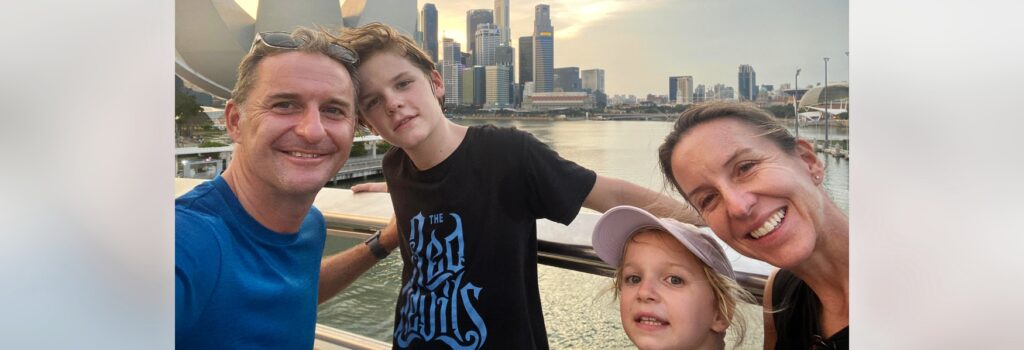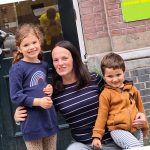HEINEKEN expat partner Sarah Boyle has been teaching English in Singapore, where she’s discovered that after-school tuition is a billion-dollar industry.
Successful career change
After moving to Singapore, Sarah – formerly a legal counsel – decided it was the right time for a career change. With the help of the HEINEKEN Partner Support Program, she completed a CELTA course, and subsequently became an English teacher. It’s been a career change she’s relished. It’s also been an eye-opening experience: “I discovered that there’s a big contrast between my own parenting style and what I have come to understand as that of many Singaporean parents, especially when it comes to after-school activities.”
After-school activities
Sarah further explains that Singaporean families have high expectations for their children’s academic performance and future studies: “It’s a very competitive environment. Everyone is looking to get ‘the extra edge’. The kids have after-school tuition of one kind or another most days. Generally speaking, the attitude is that spare time shouldn’t be wasted.”
Big business
Indeed, The Strait Times revealed that the tuition industry in Singapore was worth over $1.4 billion in 2019 (tapping this lucrative market, some ‘super tutors’ can apparently bank over a million dollars a year). “My school offers enrichment rather than tuition. But parents would still be sending their kids to the class with the expectation that it will improve their child’s academic prospects,” says Sarah.
Open for questions
“As a teacher, I like to ask my students a lot of questions and I encourage them to be inquisitive, too. I feel that took some by surprise. In the educational environment of my children, they are taught to engage in dialogue with their teachers, and to challenge the teachers and each other with questions and opinions. I have learnt that this is not the model in many Singaporean schools. But to improve their speaking skills, obviously I need to engage the kids and try to help them be more communicative and expressive.”
Plenty of playtime
“It’s definitely been interesting for me to get a sense of what a Singaporean kid’s typical weekly schedule looks like. My own approach to parenting feels pretty indulgent by comparison! I appreciate that it’s a luxury to be relaxed as parents. I told my son (11) that while he gets to play tag and football during lunch, and spend his afternoons playing sports, or meeting up with friends, this is not necessarily the case for a Singaporean kid his age!”
Photo: Sarah and family in Singapore





